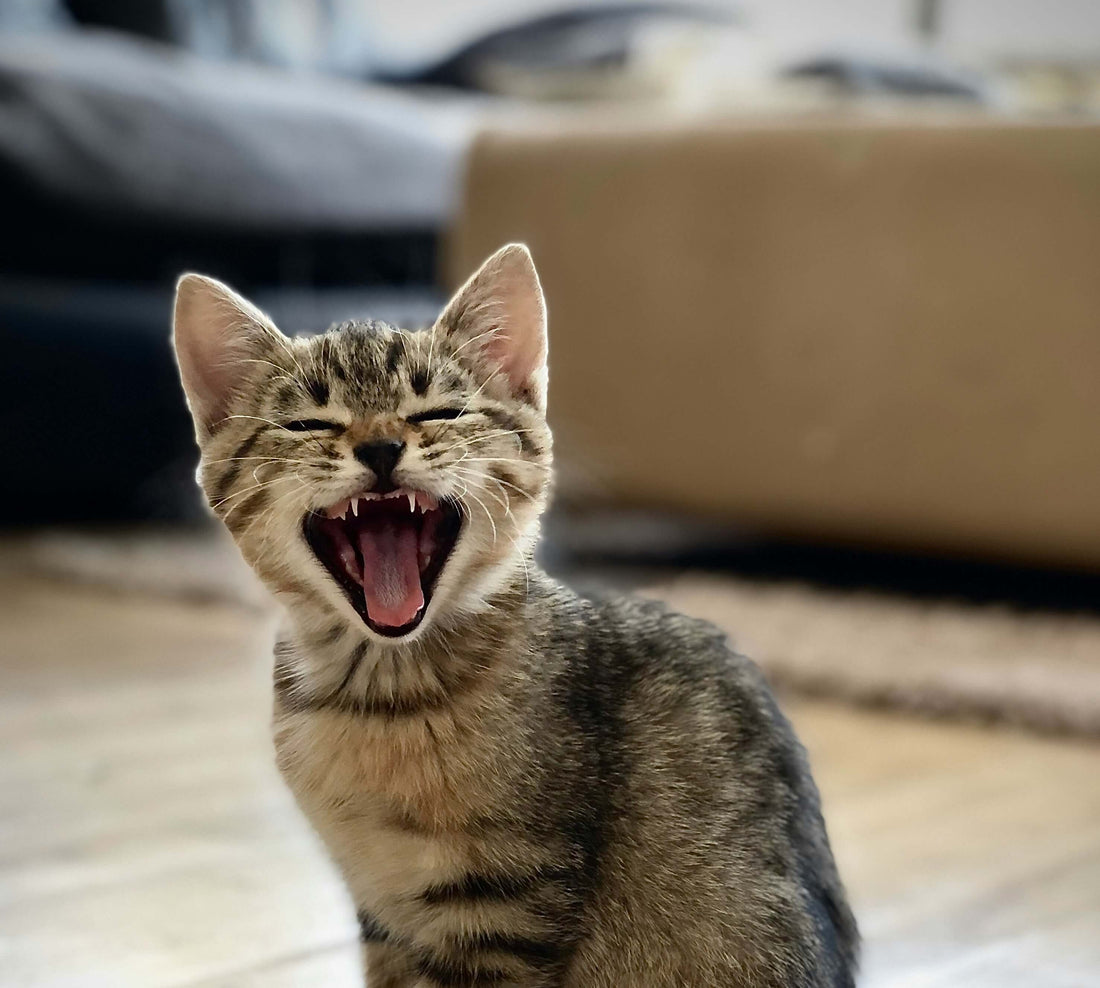
Why Do Cats Meow at Night?
Share
You’re fast asleep when it starts: your cat pacing around, meowing loudly like it’s prime time on stage. Midnight serenades might feel random (and a little spooky), but there’s always a reason behind your cat’s night-time chatter. Let’s break down what’s really going on, and how you can help your feline — and yourself — get a better night’s sleep.
Common Reasons Cats Meow at Night
1. Hunger or Expectation
Cats are creatures of habit. If dinner is served at the same time every evening, they may start expecting a midnight snack too. Some cats even learn that meowing wakes their humans up — and voilà, the kitchen opens at 2 a.m.
Fix: Try feeding your cat a small meal right before bed. An automatic feeder can also take you out of the equation, so your cat learns food comes from the machine, not your tired hands.
2. Attention-Seeking
Some cats are social night owls. If they nap through the day, they might be bursting with energy when you’re ready for sleep. Meowing is their way of saying: “Play with me!”
Fix: Schedule a proper play session in the evening. A 15-minute chase with a wand toy often tires them out. Afterwards, slip into your comfiest Signature Sweatshirt and enjoy a calm cuddle session.
3. Stress or Loneliness
Night meowing can also signal anxiety, especially in indoor cats. They may feel restless if they’re under-stimulated, or lonely if you’re not around.
Fix: Provide enrichment — climbing trees, puzzle feeders, or even leaving a radio on low for background noise. Creating a safe, engaging environment helps reduce stress.
4. Aging or Health Issues
Older cats sometimes develop cognitive changes or hearing loss that make them vocal at odd hours. Conditions like hyperthyroidism can also cause increased meowing.
Fix: If the behaviour is new or escalating, book a vet check to rule out medical causes. It’s always better to be safe.
Is Night-Time Meowing Normal?
To an extent, yes. Cats are crepuscular by nature, which means they’re most active at dawn and dusk. Some level of night activity is expected. But persistent, loud meowing that disturbs your sleep usually signals a need for food, attention, or stimulation.
How to Help Your Cat (and Yourself) Sleep
Play before bed: Tire them out so they’re ready to snooze when you are.
Evening meal: A small feed at night can prevent hunger cries.
Ignore attention meows: Hard, but effective. Responding reinforces the behaviour.
Comfortable routine: Cats thrive on consistency. A bedtime ritual signals it’s time to settle.
Vet check: Rule out health issues if the behaviour is new.
And for you? Make sure you’re cozy, even if the meowing continues. A soft hoodie from our Cat Parent Essentials Collection makes those late-night wake-ups a little easier to bear.
💭 Final Thoughts
Cats meow at night for reasons ranging from hunger to anxiety — and sometimes just because they can. With the right mix of play, feeding schedules, and patience, you can help your cat (and yourself) sleep through the night. And if you’re still up at 3 a.m., at least do it in style with something from Mewkami.
